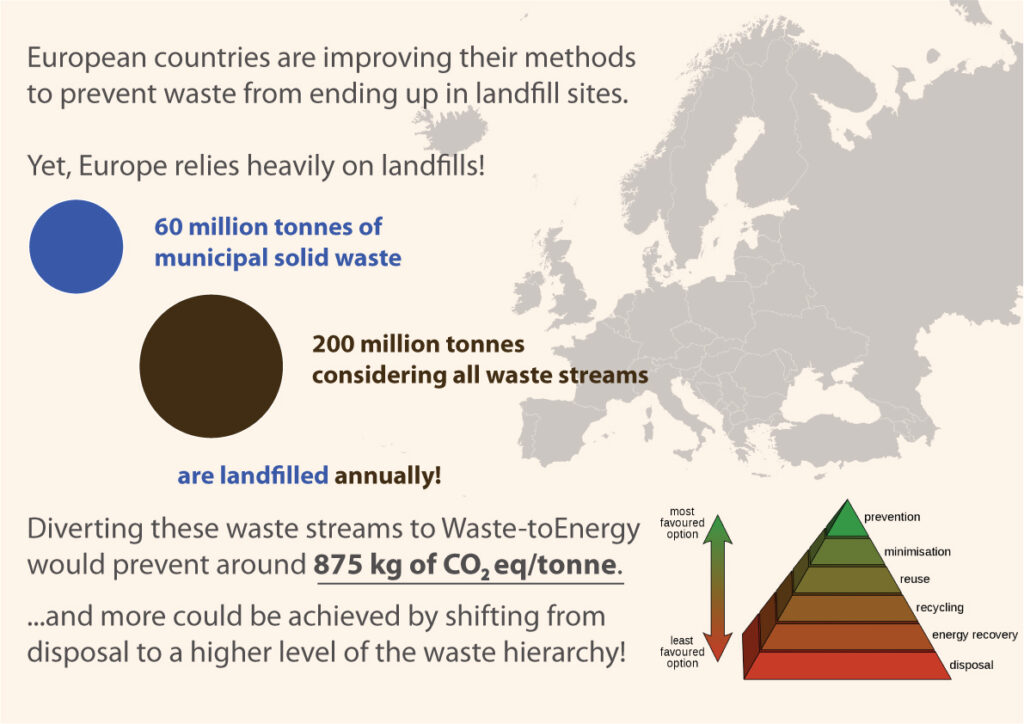Waste-to-Energy’s contribution to the “Long-term EU greenhouse gas emissions reductions strategy”

In light of the EU’s long-term greenhouse gas (GHG) emissions reductions strategy, the Waste-to-Energy sector would like to outline some key directions the EU should take in order to decarbonise waste management as well as the energy sector.
Waste-to-Energy provides an environmentally sound and cost-effective way to treat residual waste. It is an important tool to safeguard true and environmentally sound recycling by taking care of materials which due to their consistency cannot or should not be recycled. Waste-to-Energy plants also help materialise the effective landfill restrictions outlined in the Circular Economy Package, thereby contributing to limiting the use of land resources.
When looking at emissions performance in general, the sector has already complied with the most stringent environmental regulations for more than 10 years: sometimes the emissions are even at such low levels that it is difficult to measure them with the appropriate accuracy. When looking at GHG emissions specifically, one can notice that emissions from waste management have shown a strong decrease, in particular thanks to the development of recycling and other recovery processes, including Waste-to-Energy. This has led to increased landfill diversion and a subsequent decrease in methane emissions.
Read here the full document available: https://bit.ly/2MeMquw